[Photo News] Poet Ko Un’s library reproduced, revealed to public
By Park Hyun-kooPublished : Nov. 21, 2017 - 17:53
Korean poet Ko Un was contemplative at the launching ceremony of the Maninbo Library, Tuesday, where his old study was recreated and officially opened to the public.
The Maninbo Library is situated at Seoul Archival Services, on the third floor of the Seoul Metropolitan Library.
The Maninbo Library is situated at Seoul Archival Services, on the third floor of the Seoul Metropolitan Library.
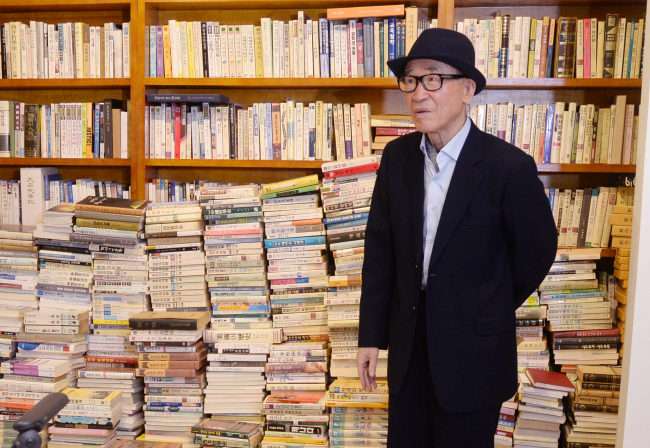
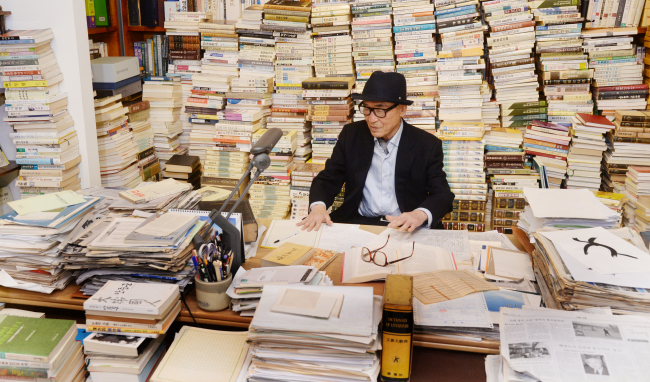

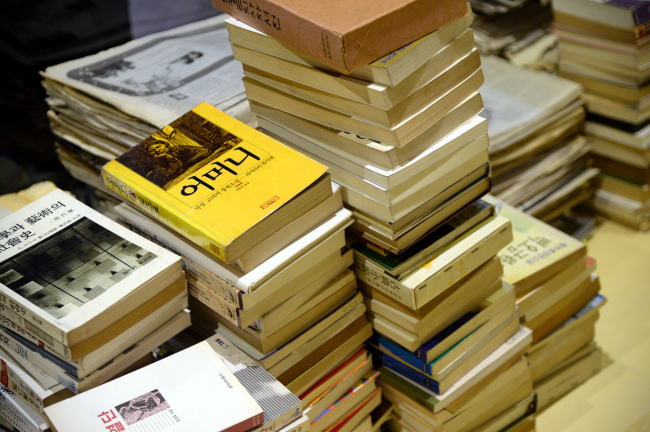

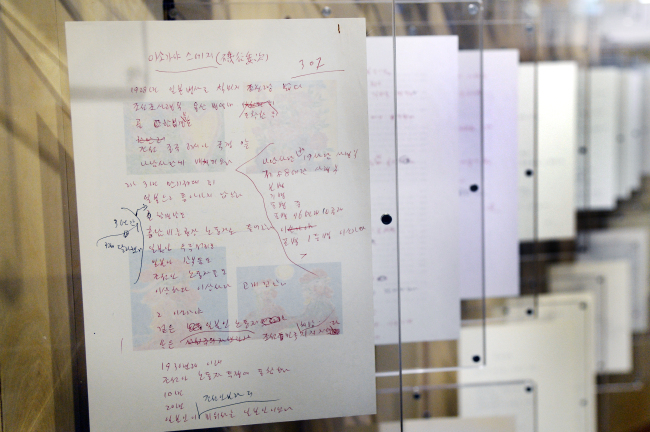
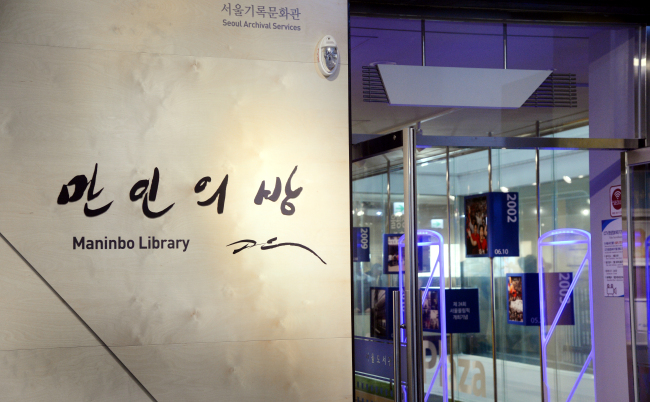
Maninbo, translating to “Ten Thousand Lives,” is the title of the series of poems by Ko Un remembering the lives of the people the poet has met both directly and indirectly.
Suh Hae-sung, the Director of the Seoul City’s Commemoration of The March 1 Movement Centennial, referred to the Maninbo Library as a “temple for language” and a “sacred place of and for citizens”
Ko has many times been nominated as a candidate for the Nobel Literature Prize. He was born as Ko Un-tae in Gunsan, North Jeolla Province in 1933. His books have been translated widely in more than 30 countries. The 30-volume Maninbo, for instance, can be read in eight languages.
Ko has said about Maninbo that the original conception of the series had started out as ”People and People,” an “ordinary title that gave ordinary people the individual fate of poetry.”
The idea had come to him during a political imprisonment in 1980.
“‘Manin,’ ten thousand people, does not have to be ten times a hundred. I simply want the word ‘manin’ to imply portraits of innumerable people’s lives,” Ko said.
By Park Hyun-koo (phko@heraldcorp.com)











![[Today’s K-pop] BTS pop-up event to come to Seoul](http://res.heraldm.com/phpwas/restmb_idxmake.php?idx=644&simg=/content/image/2024/04/17/20240417050734_0.jpg&u=)




![[KH Explains] Hyundai's full hybrid edge to pay off amid slow transition to pure EVs](http://res.heraldm.com/phpwas/restmb_idxmake.php?idx=652&simg=/content/image/2024/04/18/20240418050645_0.jpg&u=20240418181020)

![[Today’s K-pop] Zico drops snippet of collaboration with Jennie](http://res.heraldm.com/phpwas/restmb_idxmake.php?idx=642&simg=/content/image/2024/04/18/20240418050702_0.jpg&u=)